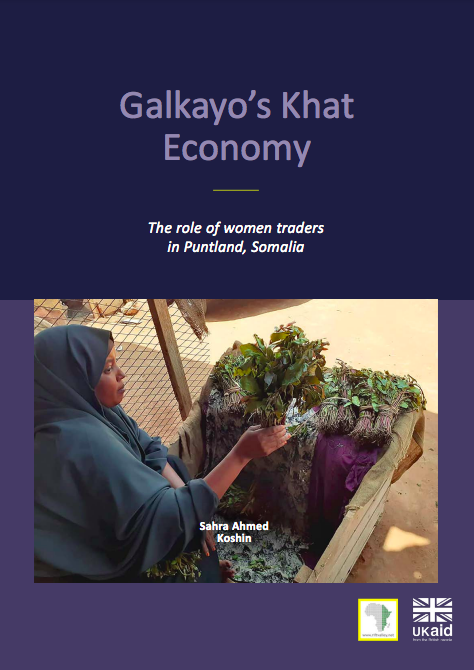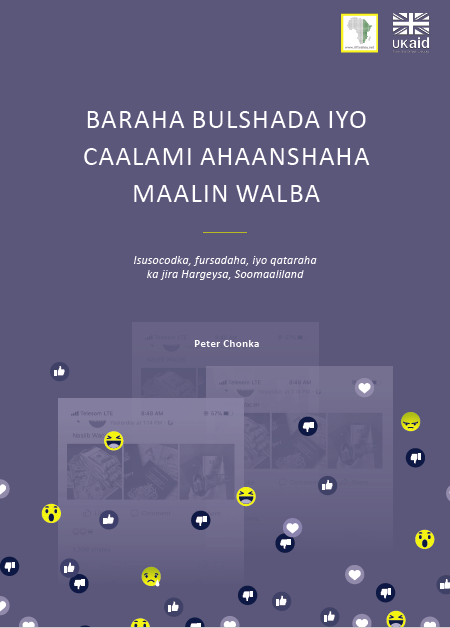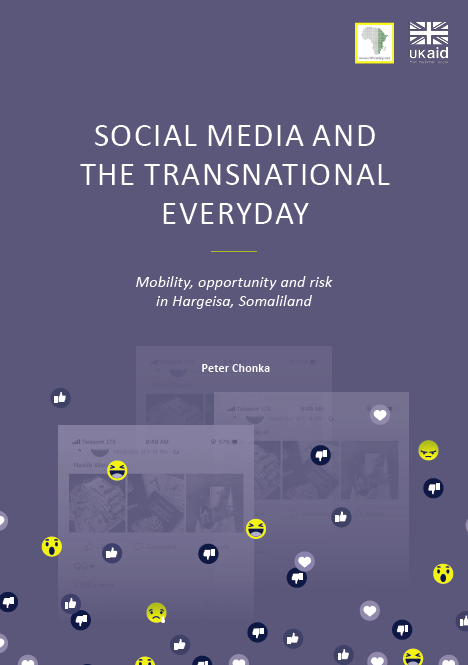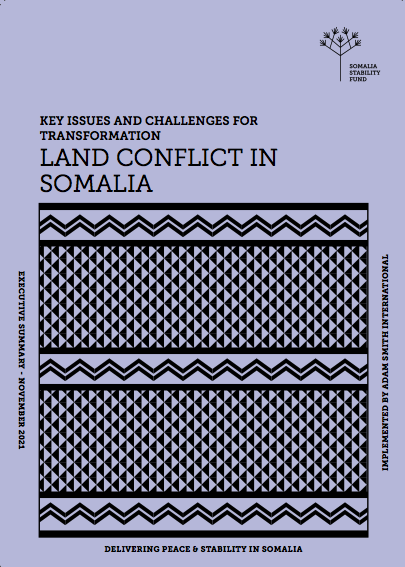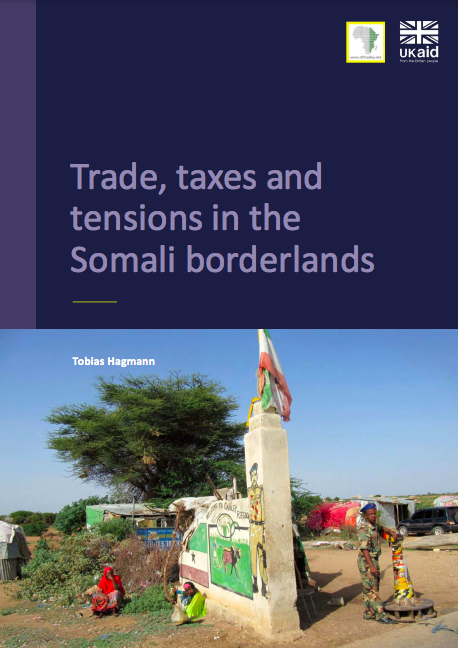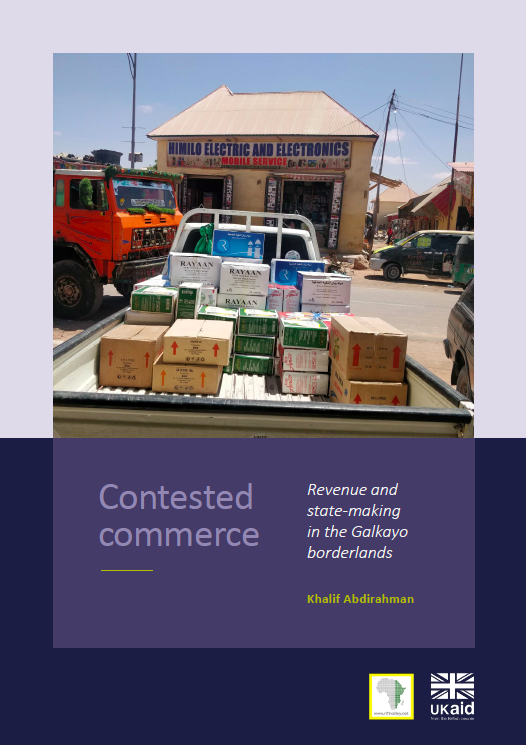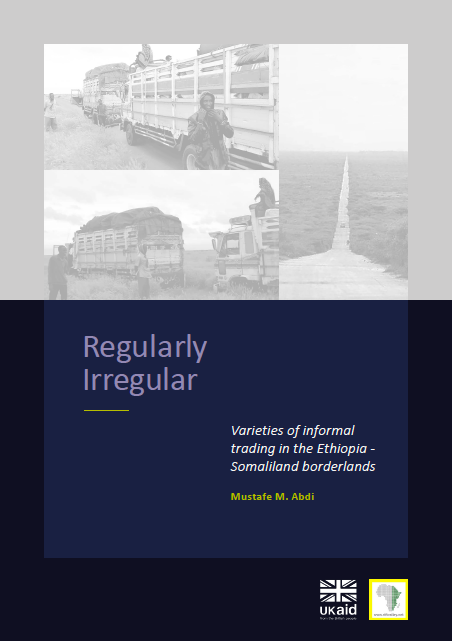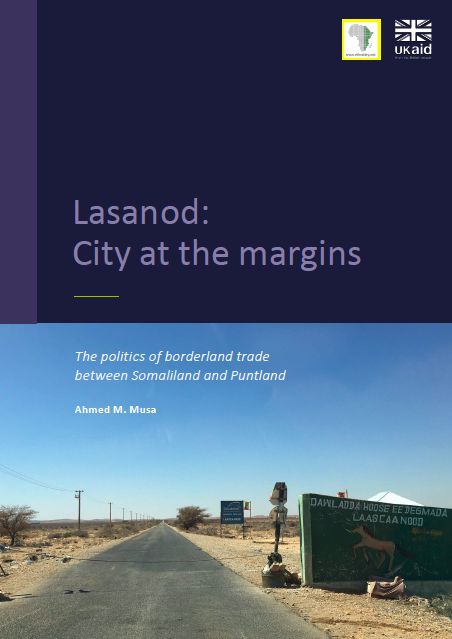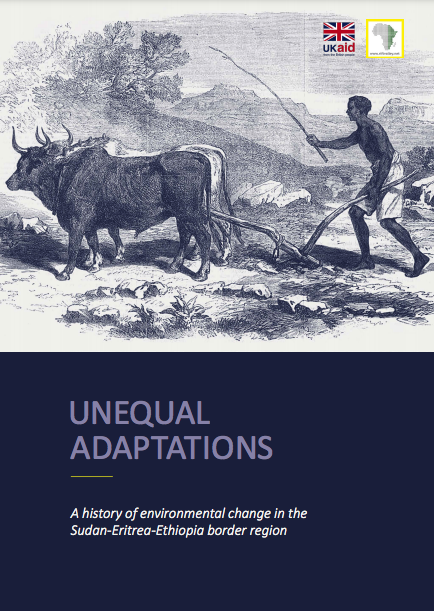Following Somalia’s economic recovery from the civil conflicts of the 1990s and 2000s, the khat trade has become a prominent source of tax revenue, particularly in Galkayo, an important regional hub for commerce between southern/central Somalia and the Port…
RVI publishes books, research reports, research papers, briefings and meeting reports in a range of formats. Publications cover policy, research, arts, culture and local knowledge in the countries of eastern and central Africa. Research publications—books, reports and papers—are peer-reviewed. Some RVI publications are also available in French and/or Arabic.
The RVI is a signatory of the Budapest Open Access Initiative (2001); all publications are free for download in PDF format under Creative Commons licences. The views expressed in books and reports published by the RVI are those of the authors, not the Institute.
SEARCH
PUBLICATION TYPE
LANGUAGE
REGION
COUNTRY
With an estimated two million people of Somali descent living outside Somalia—the ‘Somali diaspora’—an understanding of migration and transnational practices is crucial for grasping Somali society. Mobility and mobile livelihoods have been important aspects of Somali life for centuries….
Warbixintan waxa ay taxliilineysaa qaabka ragga da’da yar ee ku nool Hargeysa—caasimadda jamhuuriyadda madax-bannaanida ku dhawaaqday ee Soomaaliland—ay u isticmaalaan madallada baraha bulshada iyo kuwa dijitaalka ah si ay uga helaan fursado shaqo iyo kuwo dhaqaale, iyo sidoo…
Online and social media connectivity has increased rapidly across cities in the Horn of Africa, particularly amongst younger generations. Taking the post-conflict city of Hargeisa—capital of the de facto independent Republic of Somaliland—as its starting point, this report focuses…
This briefing paper–part of a larger report–was commissioned by Somalia Stability Fund (SSF) with the aim of conducting a comprehensive literature review on land conflict in Somalia. The report was motivated by two factors: first is the desire to…
Cross-border trade is crucial for ongoing state building in the Somali inhabited Horn of Africa. This is significantly enabled by revenue collection at border crossings, which forms a crucial part of states’ finances in this region. Cross-border trade is…
Situated between Somalia’s Federal Member States of Puntland and Galmudug, the city of Galkayo forms an administrative and social boundary within the broader Bosaso trade corridor, which encompasses Puntland, Galmudug and Hirshabelle. Located at the edge of Puntland but…
In Somaliland and Ethiopia’s Somali Regional State, small-scale informal trading far exceeds formal trade. However, most recent writing on trade in this region has disproportionately focused on formal trade thus neglecting a key area of economic activity. In contrast,…
Lasanod is located on the border between the Republic of Somaliland and Somalia’s federal state of Puntland. Now under the administrative control of Somaliland, the city is contested— sometimes violently— between the two polities, which are both products of…
The Sudan-Eritrea-Ethiopia border region has long been a place of deep interconnection. Historically, collaboration across ethno-linguistic and religious divides allowed communities to develop life-sustaining complementary strategies for utilizing the region’s natural resources. These traditional patterns of human-environment interaction both…
Recent Publications

EWNET Writes: Writing Workshop Session I
December 18, 2025
The Ethiopian Women Researchers Network (EWNET) inaugural writing workshop series aims to not only provide women researchers with uninterrupted time for their scholarly projects, but also build a supportive academic community. The first session, entitled ‘EWNET Writes: Writing Workshop Session

SSC-Khaatumo: Perspectives on the significance and implications of its formation
December 12, 2025
On 15 April 2025, during a visit to the city of Las Anod in Sool, Prime Minister Hassan Abdi Barre officially declared the federal government’s recognition of SSC-Khaatumo (SSC-K hereafter) as a federal member state, marking an important milestone in

Aid and Conflict Sensitivity in Contemporary Ethiopia
November 17, 2025
This study assesses conflict sensitivity practices among humanitarian, development and peacebuilding (HDP) actors in Ethiopia. It seeks to raise awareness and foster a deeper understanding of the evolving aid landscape in the country while analysing the challenges that affect conflict-sensitive

